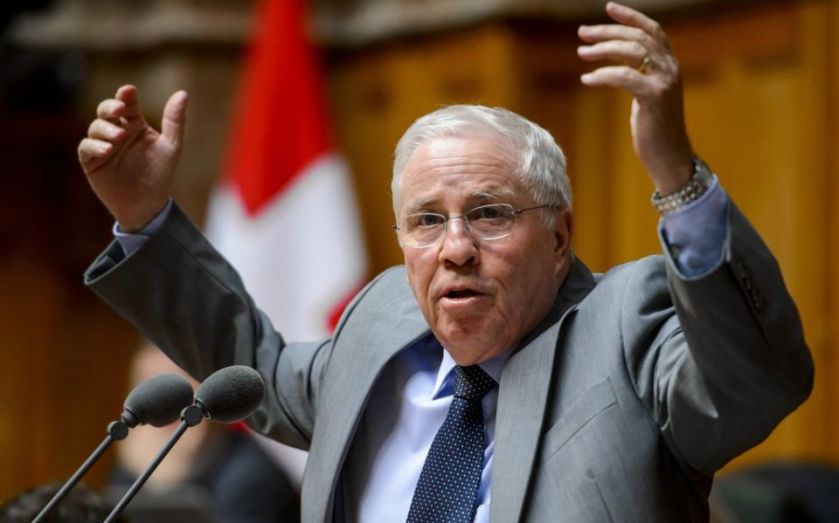EU referendum vote: Switzerland’s looming battle with Brussels could embolden Britain’s no campaigners for Brexit

The tensions between Swiss banks and businesses and Swiss politics have been heightened as a result of the country’s parliamentary elections held on Sunday. They could also have significant implications for Britain’s coming referendum on EU membership.
The big winner was the populist, anti-EU Swiss People’s Party (SVP in its German acronym), which is now comfortably the biggest party in the National Council, the Swiss Parliament that meets four times a year in Bern, and whose members are full-time employees in their businesses, professions or other workplaces, as well as retirees.
The SVP is headed and bankrolled by the businessman Christoph Blocher. He smashed Switzerland’s complacent political consensus, taking on mainstream Swiss business and political elites by paying for a series of referendums, including a key one in 1992 which rejected Swiss membership of the European Economic Area. This was followed by a vote banning Muslim Swiss citizens from building mosques with minarets. Then, in February 2014, Blocher and his party won a referendum which demanded a limit on free movement of EU citizens into Switzerland.
Read more: The City’s voice must be heard on Europe
Switzerland had always been a high immigration country, with a quarter of its population foreign born or with parents who are immigrants. But recent arrivals of EU migrants, especially wealthy, educated Germans buying up property and taking professional jobs once reserved for the Swiss, has caused tension.
The Swiss, like the Norwegians, are more or less members of the EU, in that they accept all the norms and regulations decided in Brussels in exchange for having full single market access. In return, however, the Swiss and Norwegians had to accept free movement.
The 2014 referendum to ban free movement produced an initially hard reaction from Brussels, which included suspending research grants and cooperation with Swiss universities. Then the Swiss-EU question settled into a stand-off. The European Commission has told the Swiss that free movement is non-negotiable. Brussels has also said that all future disputes between the EU and Switzerland must be settled by the European Court of Justice.
Sunday’s victory for Blocher’s SVP party is going to make finding a solution much more difficult, as any new deal will have to be put to a referendum. Brussels would be advised not to beat up on the Swiss, with Jean-Claude Juncker playing the role of Albrecht Gessler, the Austrian bully who forced William Tell to shoot an arrow off his son’s head, thus launching in Swiss mythology the founding moments of Swiss confederal independence.
Any renewed Swiss-EU bust-up will be of particular concern to Swiss banks, who want the advantages of the single EU banking passport.
Further, the Swiss-EU relationship is now intertwined with the UK Brexit debate and referendum. The sight of Brussels bullying Switzerland will play into anti-EU lines in Britain, which portray the EU as bossy and dictating to independent nations.
By the time of the next parliamentary elections in Britain or Switzerland, who knows where either country will be.